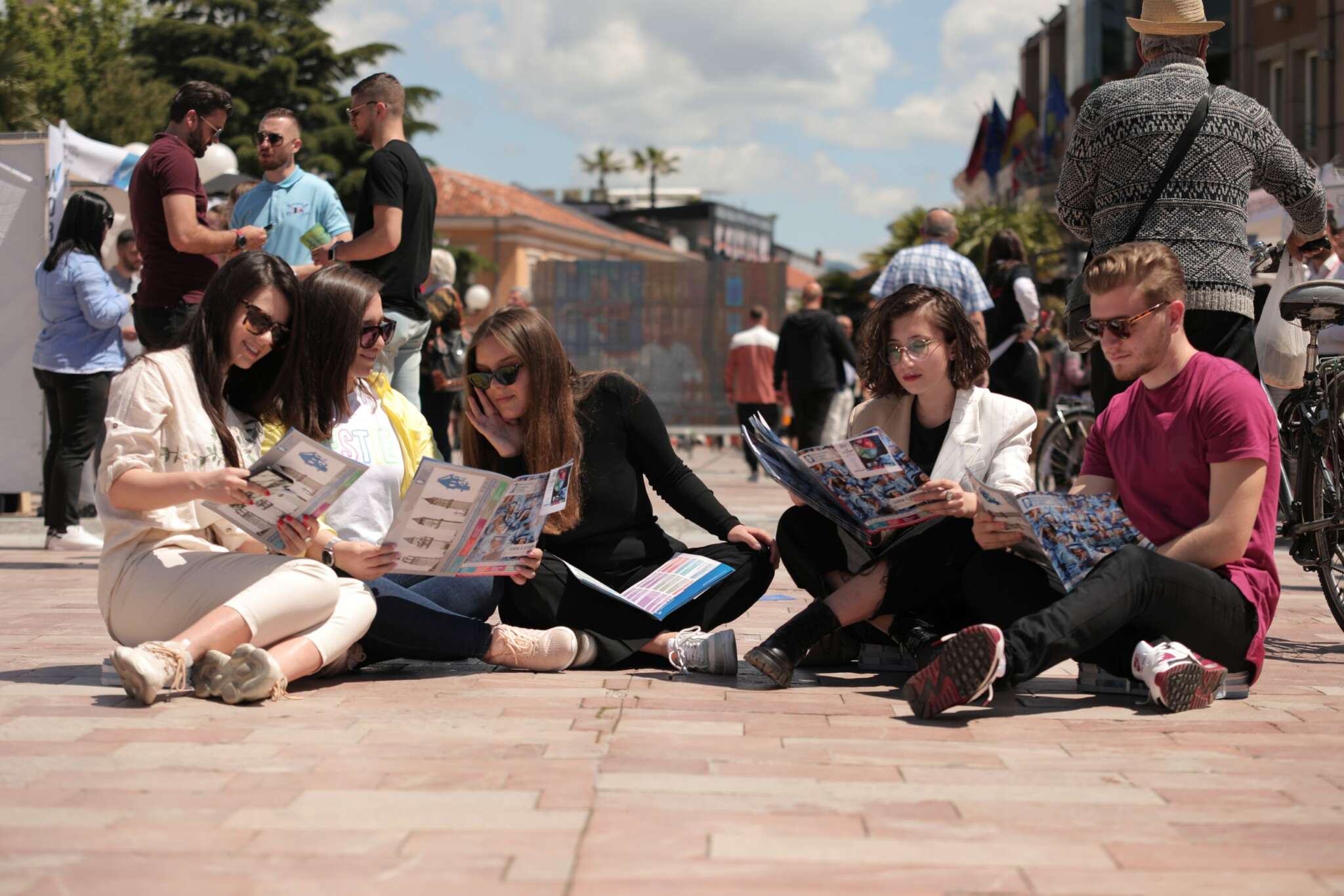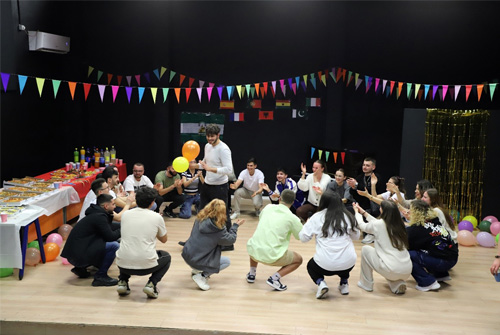
STUDENT’S LIFE
Anyone who has studied or studies at the European University of Tirana, knows that one of the strongest points of this institution is the student life that characterizes it, dynamic and attractive, with many opportunities where everyone can find themselves best.
STUDENTS CLUB
Student clubs are one of the favorite ways to spend free time during the school year. The organization of the clubs is done in such a way as to meet the entire spectrum of the students’ wishes and needs, from the book club, the philosophy club and the debate club, which promote critical and analytical thinking skills and communication skills in every student. to clubs with artistic or sports activities. “Entertainment clubs” have been created to fulfill the free time and also the passions of the students.
But these activities are not limited only within the clubs, but also extend to other organizations beyond the auditorium that have the purpose of further development of academic knowledge but also entertainment. They provide them with a different space where they can benefit from a career orientation as well as gain or strengthen interpersonal skills and a more active social life. In the philosophy of UET, students are encouraged to give their ideas and be creative, so the clubs are specially built spaces for them to be creative and put their ideas into practice.
It can often be a challenge for first-time university students to build their own social network, and getting involved in extracurricular activities helps these students meet new people with whom they share interests and improve their social skills as a result. These new connections made through these activities also help students expand their network of professional contacts, which is helpful for finding and developing career opportunities after graduation.

Working together with other individuals, they learn to negotiate, communicate, manage conflict and lead others. Participating in these activities outside the classroom helps students understand the importance of critical thinking skills, time management, and academic and intellectual competence as well as making the most of these spaces for interaction, relationship building, and discussion development. Working outside the classroom, with diverse groups, allows students to gain more confidence, autonomy and appreciation for the differences and similarities of others.
